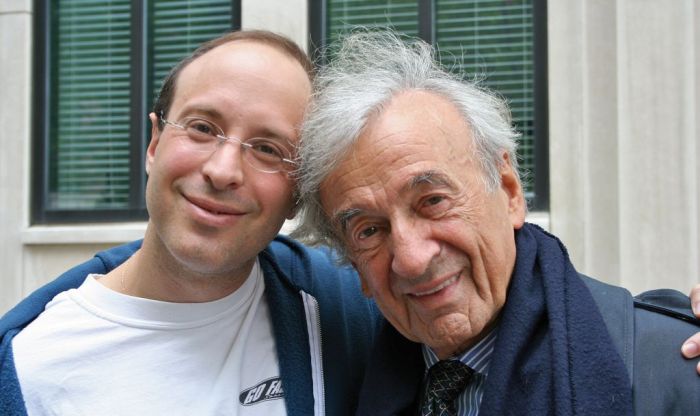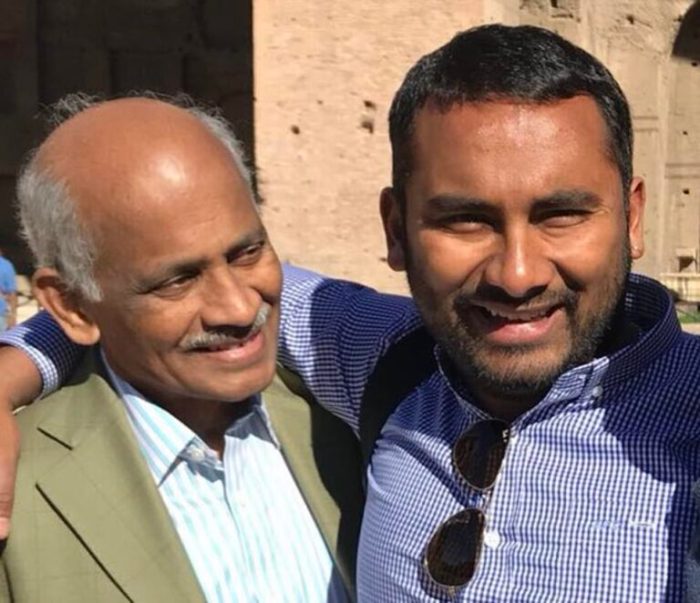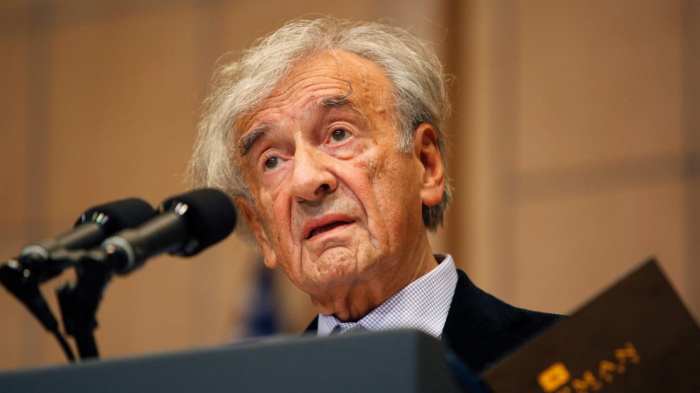Elie and his father relationship – The relationship between Elie and his father in Elie Wiesel’s memoir, Night, is a complex and evolving one. It is a relationship that is shaped by love, respect, and understanding, but it is also a relationship that is strained by the horrors of the Holocaust.
Over the course of the memoir, Elie and his father face unimaginable challenges, and their relationship is tested in ways that neither of them could have ever imagined.
In the beginning of the memoir, Elie and his father are very close. Elie looks up to his father as a role model, and he admires his father’s strength and wisdom. However, as the Holocaust progresses, Elie begins to see his father in a different light.
He sees his father’s faith in God waver, and he sees his father’s strength begin to fail. Elie begins to question his father’s authority, and he begins to resent his father for not being able to protect him from the horrors of the Holocaust.
Family Dynamics

The relationship between Elie and his father was complex and multifaceted. It was marked by both love and tension, and it evolved over time as they both experienced the horrors of the Holocaust.
Early Relationship
In the early years of their relationship, Elie and his father were very close. Elie’s father was a respected member of the community, and Elie looked up to him as a role model. However, as Elie grew older, he began to question his father’s faith and beliefs.
During the Holocaust, Elie and his father relationship
The Holocaust had a profound impact on the relationship between Elie and his father. They were both sent to Auschwitz, where they were forced to endure unimaginable horrors. Elie’s father became increasingly weak and frail, and Elie had to care for him.
This experience brought them closer together, and Elie began to see his father in a new light.
After the Holocaust
After the Holocaust, Elie and his father were reunited. However, their relationship was never the same. Elie had lost his faith, and he could no longer relate to his father’s beliefs. Despite this, they remained close, and Elie continued to care for his father until his death.
Parental Influence: Elie And His Father Relationship

Elie’s father played a pivotal role in shaping his son’s beliefs and values. A devout and learned man, he instilled in Elie a deep respect for Jewish tradition and a commitment to intellectual inquiry.
Elie’s father’s experiences during the Holocaust had a profound impact on his son. Having witnessed the horrors of the concentration camps, he emerged with a heightened sense of humanity and a determination to fight against injustice. This perspective deeply influenced Elie, shaping his own activism and advocacy for human rights.
Decision-Making
Elie’s father’s guidance and teachings had a direct impact on his son’s decision-making throughout his life. Elie’s decision to study philosophy and literature was strongly influenced by his father’s love of learning and his belief in the power of knowledge.
Shared Experiences

Elie and his father shared a profound bond forged through their shared experiences during the Holocaust. These experiences left an indelible mark on their relationship, shaping their perspectives and deepening their connection.
Deportation to Auschwitz
- The shared trauma of deportation to Auschwitz tested their resilience and forced them to rely on each other for survival.
- Elie’s father became his protector, providing him with emotional support and guidance amidst the horrors of the camp.
- Their shared suffering strengthened their bond, creating a sense of solidarity and mutual understanding.
Life in the Concentration Camp
- The daily struggles and privations of life in the concentration camp brought them closer together.
- They shared food, offered each other encouragement, and found solace in each other’s company.
- Their shared experiences forged an unbreakable connection that transcended the horrors they endured.
Liberation and Aftermath
- The liberation of Auschwitz brought a sense of relief but also a profound sense of loss.
- Elie and his father struggled to come to terms with their experiences and the loss of their loved ones.
- Their shared memories and the bond they had forged helped them navigate the challenges of the post-Holocaust world.
Emotional Connection

Elie and his father shared an unbreakable emotional bond. Their relationship was built on love, respect, and mutual understanding.
Elie’s father was a devout Jew who instilled in his son a deep sense of faith and spirituality. He was a loving and supportive figure, always offering Elie guidance and encouragement. Elie, in turn, held his father in the highest regard and looked up to him as a role model.
Expressions of Emotion
Elie and his father expressed their emotions towards each other in a variety of ways. They often shared intimate conversations, discussing their hopes, fears, and dreams. They also showed their affection through physical gestures, such as hugs and kisses.
One particularly poignant example of their emotional connection occurred during the Holocaust. As they were being marched to a concentration camp, Elie’s father stumbled and fell. Elie immediately rushed to his aid, risking his own life to help his father.
This act of selflessness demonstrated the depth of their bond.
Legacy and Impact

Elie Wiesel’s father’s legacy continues to profoundly influence him, shaping his perspectives and aspirations. The deep bond they shared left an indelible mark on Elie’s life and work, inspiring him to become a tireless advocate for human rights and a voice for the voiceless.
The Power of Memory
Elie’s father’s unwavering belief in the power of memory instilled in him the importance of remembering and bearing witness to the horrors of the Holocaust. Elie’s works, such as Night, serve as a testament to this legacy, ensuring that the victims’ stories are never forgotten.
Commitment to Justice
The suffering and injustice his father endured during the Holocaust ignited in Elie a deep commitment to fighting for justice and human dignity. He became an outspoken advocate for victims of oppression and a tireless campaigner against tyranny and intolerance.
Spiritual Legacy
Despite the horrors they faced, Elie’s father maintained a deep faith in God and the importance of spirituality. This legacy influenced Elie’s own spiritual journey, leading him to explore the complexities of faith and the search for meaning in the face of adversity.
Literary Inspiration
The relationship between Elie and his father has served as a rich source of inspiration for his literary works. Elie’s writing often explores the themes of fatherhood, loss, and the search for identity, drawing upon the experiences he shared with his father.
FAQs
What is the significance of Elie’s father in the memoir?
Elie’s father is a complex and important figure in the memoir. He is a symbol of strength, courage, and hope. He is also a symbol of the suffering and loss that the Jewish people endured during the Holocaust.
How does Elie’s relationship with his father change over the course of the memoir?
Elie’s relationship with his father changes over the course of the memoir. In the beginning, Elie looks up to his father as a role model. However, as the Holocaust progresses, Elie begins to see his father in a different light.
He sees his father’s faith in God waver, and he sees his father’s strength begin to fail. Elie begins to question his father’s authority, and he begins to resent his father for not being able to protect him from the horrors of the Holocaust.
What is the significance of Elie’s father’s death?
Elie’s father’s death is a turning point in the memoir. It is a moment of great loss for Elie, and it forces him to confront his own mortality. Elie’s father’s death also symbolizes the end of Elie’s childhood. He is now a man, and he must face the challenges of the world on his own.